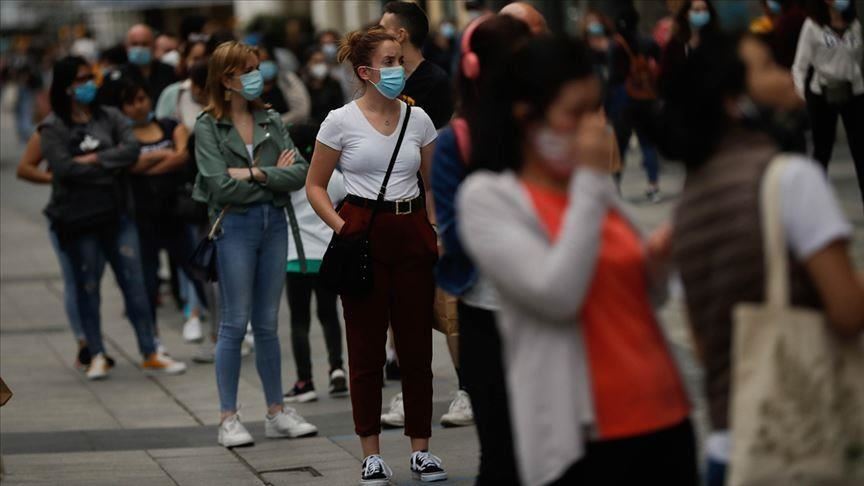
OVIEDO, Spain
Spain saw an uptick in new coronavirus infections on Friday, marking the end of the deadliest week since April.
The Health Ministry confirmed 21,371 new infections -- up nearly 2,000 from Thursday.
Pressure on hospitals declined slightly but remains steady with 16% of all hospital beds and 32% of intensive care units still occupied by COVID-19 patients.
With another 308 reported deaths on Friday, the ministry has now confirmed nearly 2,000 new fatalities in the last week -- numbers not observed since late April.
The first wave of the pandemic already caused Spain’s life expectancy to drop by 0.9 year, according to a new study published by Spain’s Center for Demographic Studies.
For men in Madrid, it was the worst -- dropping by 2.8 years when comparing the year leading up to July 2020 with the year leading up to July 2019.
“The recently observed mortality excess in the second wave suggests the drops in life expectancy by the end of the year will be even larger,” said the authors in the paper. “Our estimates […] suggest that the COVID-19 pandemic has the potential to cause life expectancy stalls not seen for decades.”
Meanwhile, Madrid, which has seen its infection rate drop by more than half in the last month, has moved to relax mobility restrictions in several districts. As of Monday, people in those areas will be allowed to leave and enter for non-essential reasons.
The Spanish capital’s famous Sunday flea market, el Rastro, is set to begin operating again on Nov. 22 after being closed for close to eight months.
Anadolu Agency website contains only a portion of the news stories offered to subscribers in the AA News Broadcasting System (HAS), and in summarized form. Please contact us for subscription options.







